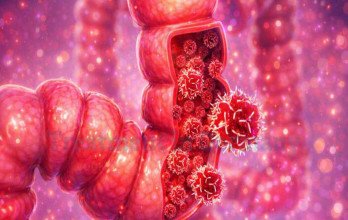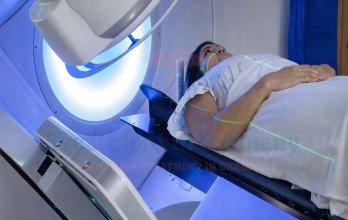
Explore immunotherapy for stage 4 bladder cancer in Germany, focusing on dendritic cell therapy, step-by-step procedure and support for international patients.

Explore lung cancer treatment options in Germany, including TPCE, TACP, and dendritic cell immunotherapy, with expert treatment and full support for international patients.

Learn about stage 4 metastatic colon cancer treatment options, including TACE therapy, dendritic cell vaccine immunotherapy, and clinical trials, with advanced treatment options available in Germany.

Learn about radiation therapy for breast cancer in Germany, including treatment planning, side effects, and advanced supportive therapies for international patients.

Explore stage 4 endometrial cancer, its symptoms, and advanced treatment options in Germany like targeted embolization and dendritic cell immunotherapy for stage 4 endometrial cancer patients.

Explore Endometrial Cancer treatment options in Germany, including targeted embolization and dendritic cell immunotherapy, with innovative therapies and complete support for international patients by TIG.

Explore Brain Cancer Treatment Options in Germany, including radiation therapy, chemotherapy, and innovative dendritic cell immunotherapy in Germany, with expert treatment planning and international patient support.

Learn what are the symptoms of stage 4 cervical cancer, including pelvic, urinary, and systemic signs, and explore advanced cancer treatment in Germany such as targeted embolization and dendritic cell immunotherapy for international patients.

Learn about stage 4 esophageal cancer symptoms in Germany, including swallowing difficulty, fatigue, weight loss, and metastatic signs, and explore advanced treatment options with expert care for international patients.

Learn what are the symptoms of stage 4 liver cancer in Germany, including abdominal pain, jaundice, fatigue, and metastatic signs, and explore advanced cancer treatment in Germany such as TACE and dendritic cell immunotherapy for international patien...

Learn about the survival rate of stage 4 metastatic bladder cancer, factors affecting prognosis, and advanced treatment options in Germany including targeted embolization and dendritic cell immunotherapy with expert guidance.

Learn about Stage 3 Lung Cancer: Survival Rates and Treatment Options, including TPCE treatment, TACP treatment, and dendritic cell immunotherapy in Germany, with doctor details, costs, and guidance for international patients.

Discover dendritic cell therapy for cancer treatment in Germany, a trusted personalized immunotherapy for international patients seeking advanced cancer care, expert specialists, transparent costs, and comprehensive treatment support.

Explore immunotherapy for stage 4 SCLC in Germany, focusing on dendritic cell therapy, step-by-step treatment process, advanced immune-based care, and full support for international patients seeking innovative cancer treatment.

Learn about brain cancer treatment with dendritic cell therapy, including the step-by-step process, treatment cost, specialist expertise in Germany, and support options for international patients seeking advanced immunotherapy.

.webp)
 (1).webp)

.webp)
 (1).webp)


.webp)
 (1).webp)

.webp)
 (1).webp)
